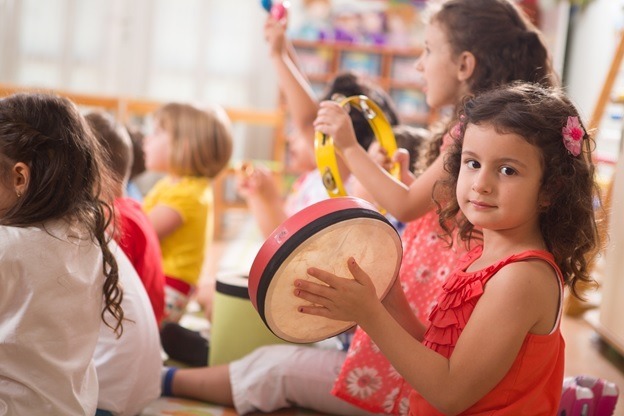Children of all ages are now required to complete extensive career preparation as part of their schooling. School systems work hard to enforce mandated standards to assist kids to perform well on standardized tests and develop the skills they need for future employment prospects.
Although it is illogical, many creative educational programs, such as art and music, are evaluated as needless and removed from the curriculum in this worthwhile endeavor. However, many schools are unaware that programs like music education can have significant positive impacts on children’s growth and development.
If you are more aware of your children’s music education, then you should find a local reputed music school like searching for a music school near me. Now learn about the ultimate 6 benefits of music education, which highlight not only how music can benefit students, but also how it can help them prepare for future endeavors.
Increase Language Capabilities
If you want your child to have vaster vocabulary storage and better reading comprehension skills, studies show that consistent kids music lessons help with both.
There is a new discussion that reveals that the brain regions controlling musical skill and linguistic comprehension are more closely linked than previously imagined. Students in music classes should be able to recognize and repeat pitch, word enunciation, and most importantly tone.
Music has a direct impact on a child’s capacity to learn words, pronounce them correctly, and digest the many new sounds they hear from others, especially in young children.
Improve Memory Function
Memorization is a big part of music education. Students have to be able to read music through sight, play correct notes on their instrument, and remember lyrics. This method is healthful to the brain’s overall memory center. Furthermore, musicians outperformed non-musicians in visual, auditory, and memory assessments in one study.
It’s also interesting that it’s so simple to remember music. Music can be used to aid memory in children. Common tunes can be used to memorize data, meditative music can be played during study time, and music resources can be used to communicate materials.
Strengthen Hand-eye Coordination
It’s long been recognized that playing a musical instrument promotes dexterity and hand-eye coordination. When playing an instrument, a musician must produce the correct notes with the appropriate hand gestures, whether it’s closing valves, pressing keys, or using another sound-producing apparatus. Apart from this, the musician has to read the sheet music and heed the conductor’s instructions.
In younger children, this opportunity to improve motor learning skills is especially crucial. Even a simple introduction to an instrument, like hitting a triangle or learning a song on the recorder, could be valuable.
Promote Strong Study Habits
Time spent studying and remembering information becomes increasingly important as children grow and are exposed to more challenging courses of study. Students are required to work at home to confirm they have gained the vital information as more time is spent in the classroom introducing new subjects and concepts.
Children who obtain proper music instruction develop effective study habits. It takes a concerted effort, constant practice, and determination to master their special musical craft. These self-disciplined habits carry over to other subjects.
Teach Teamwork
Music is usually considered as a means of promoting individual expression. While that said, music may also be used to enlighten teamwork. This is nowhere more obvious or strong than in schools.
Students collaborate to produce a unified, technically critical performance. They build a network of like-minded people who can help one other achieve their goals. School music programs provide a sense of belonging for many students.
Improve Problem-solving Ability
Finally, one of the most valuable aspects of music education is the improved ability to mentally process events and discover answers. Musically trained ones have larger amounts of grey matter volume in their brains, which is linked to auditory processing and understanding.
Fortunately, one of the most crucial aspects of life is building relationships. Musicians get a better awareness of how to listen to people, perceive emotion, and react with tremendous depth and understanding.

